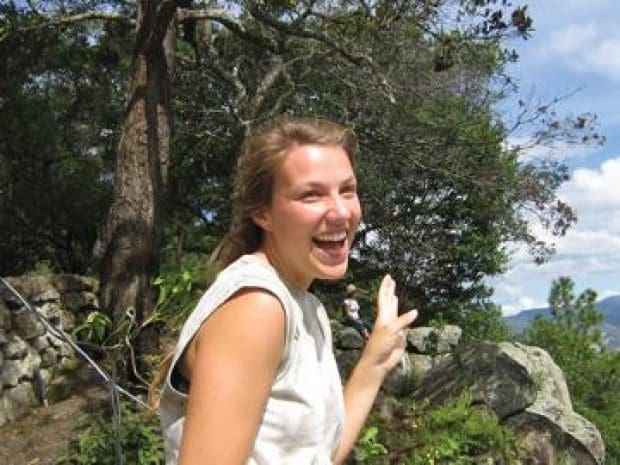
A Malibu teen re-evaluates life after completing a service project in Honduras, helping to build a home for an impoverished family.
By Ruth Lundi / Special to The Malibu Times
The wonder of what Caroline (“Carrie”) Plumridge called a “life-changing” experience was still evident on her face as she described her experiences in Honduras this summer helping to build a house for a poor family. Plumridge,17, a Malibu High School senior, said she was originally looking for an exchange program in Spain to supplement her fourth year of Spanish, but “when I found out about building this house, I really wanted to go.”
Plumridge was recruited to go to Honduras through an e-mail from a friend involved in the Sierra Service Project, an independent Christian youth ministry affiliated with the Methodist church, but open to all. The organization sends youth on “missions” to help build and repair homes, mostly on Native American reservations, as well as Honduras. Each team is headed by a United Methodist pastor,who accompanies each group to and from the mission site as well as works alongside the youth. In the Honduras, a pastor there serves as program coordinator and translator.
Typically, the organization sends intact youth groups overseas, said Rick Eaton, director of the Sierra Service Project, but despite the fact that Plumridge didn’t know anyone, she was eager to go.
Originally from South Africa, the living conditions [in Honduras] didn’t shock Plumridge, but, he said, “It was just crazy how happy these people were. They know how to use their resources and they know how to live on less than $100 a month.
“In almost every case, the beneficiary [of the Sierra Service Project’s efforts] is a family headed by a single woman who has been abandoned by the husband-a real social phenomenon [in Honduras],” Eaton explained.
The family Plumridge helped build a house for was headed by a woman whose husband abandoned them. “The woman was living with her sister. There were nine of them living in a one-room house,” Plumridge said.
The process of building the home was not easy, working without blueprints and basic tools. “Eliseo [the Honduran in charge] cut this piece of wood and made a measuring device,” Plumridge said. “We had to dig trenches and carry boulders for the foundation. I laid bricks.”
The volunteers walked daily to the worksite, a location on the top of a hill where they had to climb 150 steps. “We were carrying cinderblocks,” Plumridge said. “Want to see my muscles?”
The building of the home ultimately became a community project. “My favorite part of the building process was mixing the ‘mescla,’ a mix of different sands, cement and water,” Plumridge said. “We made this metaphorical symbol of it. We were mixing all these different colors of sand with our sweat and the whole community would come help. After [they finished] their jobs they’d come do everything they could to help us.”
Her trip to the Honduras “definitely changed me,” Plumridge said. “It made me realize how much I could personally do.”
Plumridge said she learned about “social injustices and inequitable wealth distribution. It really made me want to get out of L.A. It made me want to move to a more clear and unpolluted atmosphere. I really want to live a purer life.”
Mom Megan Plumridge said of her daughter’s experience and accomplishments: “I am very proud of her. I am very happy she had this experience. It has been very enlightening for her. I’m from Africa and I have seen these things. I wanted her to have that kind of experience. She really ‘got it.’ Every kid should go on a trip like this.”
Her daughter agreed. “It changed me in ways I can’t even describe,” she said.
Noel Anderson, director of the project in Honduras, said about Plumridge: “For everyone on the trip it is [a] life changing experience. Carrie came down blinded to the reality of poverty by the life of privilege she had always been part of, but the kindness, humility and faith of the Honduran people, combined with the active self-reflection and sociological analysis really moved Carrie in a different direction and she seemed to walk toward the plane home with a sense of greater purpose, cause and spirituality. This was a wonderful sight to witness and to be a part of.”
“Money is just money,” Plumridge said. “If you just give $100, once it’s gone, it’s gone. But helping someone do something constructive for their family with your own hands-I mean, this is the place they’re going to live for the rest of their lives and I helped them do that!”
More information about the Sierra Service Project can be obtained online at www.sierraserviceproject.org
